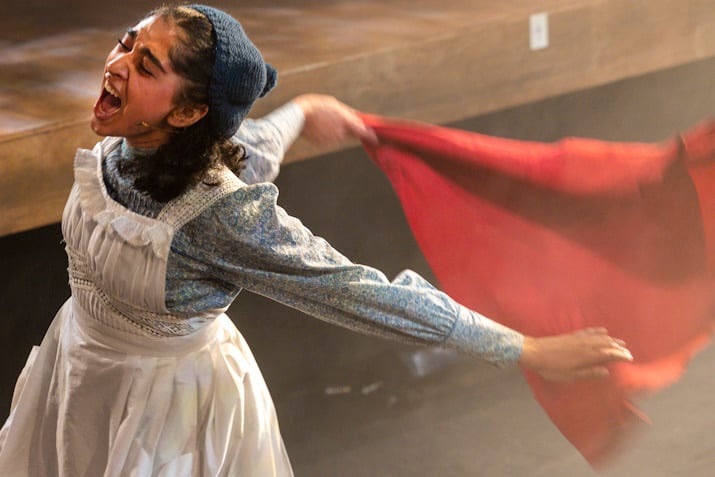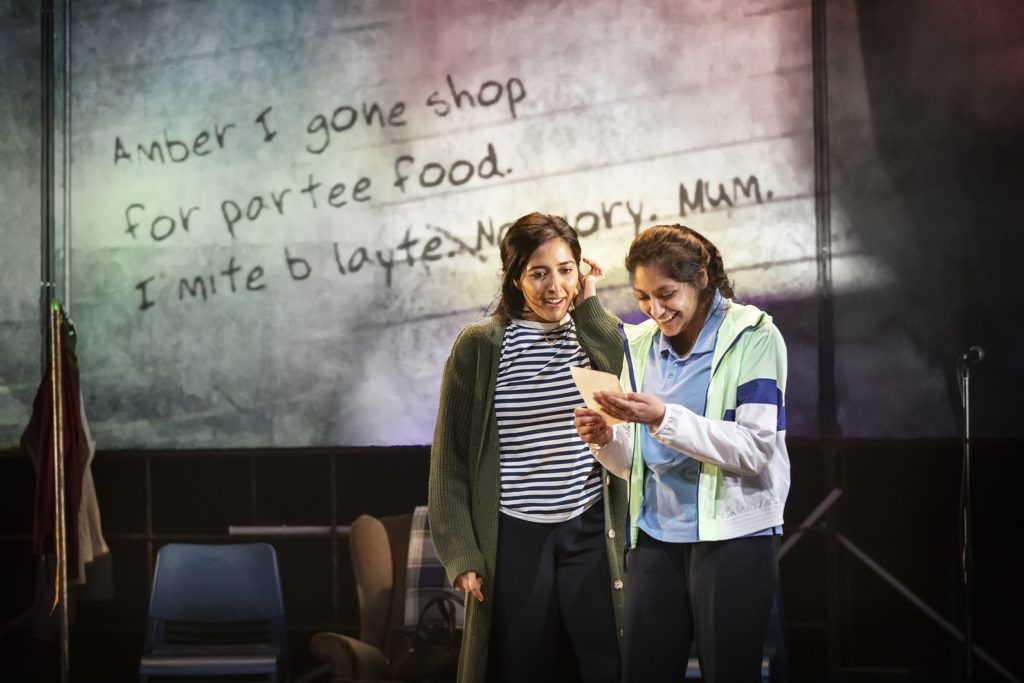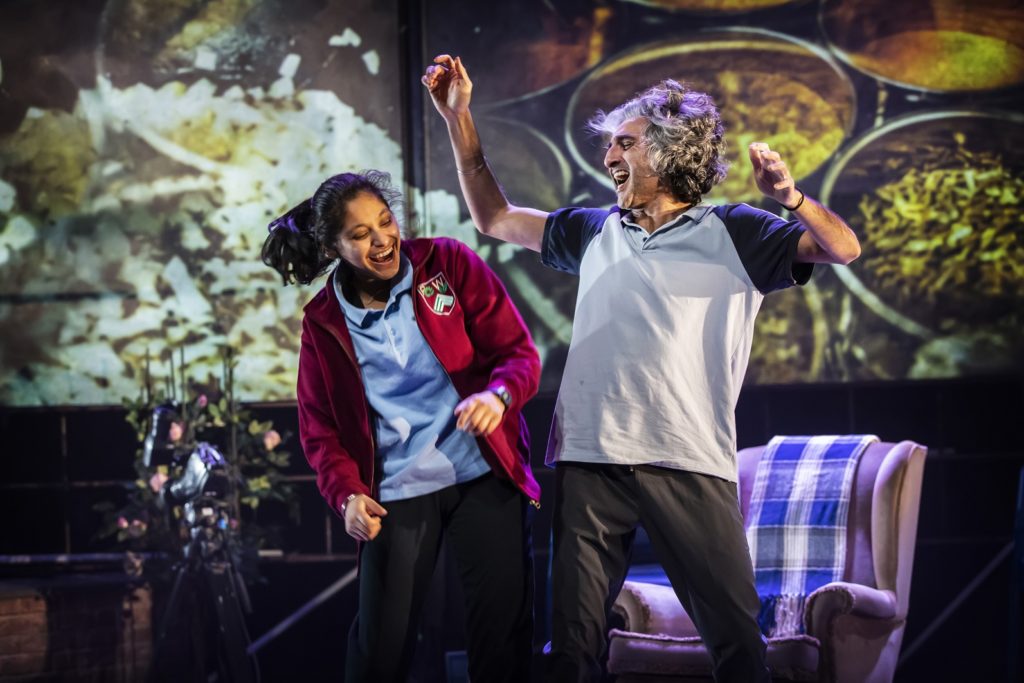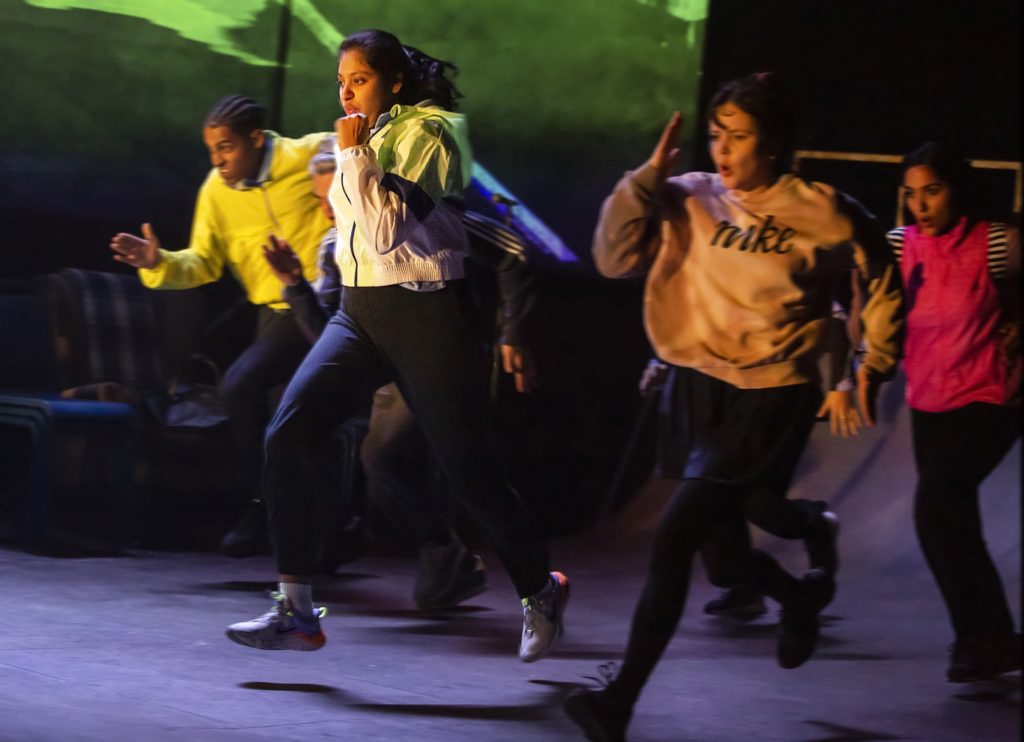
Farah Ashraf’s Roberta in the Bradford 2025 UK City of Culture revival of York Theatre Royal’s The Railway Children at Oxenhope Station. Picture: James Glossop
FULL steam ahead for The Railway Children becomes even fuller steam ahead as E Nesbit’s story returns to the railway line where Lionel Jeffries’s charming 1970 film was filmed, Jenny Agutter’s red petticoat, Bernard Cribiins’s bluster et al.
This re-sparking of York Theatre Royal’s Best Entertainment Olivier Award award winner for Bradford 2025 UK City of Culture becomes even more resonant in highlighting Nesbit’s call for tolerance, integration, safe sanctuary and understanding of “otherness”, in our overheated age of Reform, rejection, division and more overt racism. It reemphasises how Bradford has always been a beacon for multiculturalism, a cornerstone of this year’s festival.
In 2008, in the audacious apex achievement of Damian Cruden’s 22 years as York Theatre Royal artistic director, he teamed up with prolific York playwright Mike Kenny to transform the National Railway Museum freight depot into a tented traverse theatre in the heart of York, the most-storied railway city in the north.
The Railway Children felt right at home there, so much so that it booked a return ticket in 2009. Now, The Railway Children has “come home” to the Keighley and Worth Valley Railway (when Jeffries transferred Nesbit’s rural location from Kent to Oakworth station up north in an inspired move).
Excited City of Culture and Worth Valley volunteers are omnipresent as audience members board the steam train – eight carriages long – at Keighley Station to travel the line’s full money’s worth to Oxenhope Station, to the accompaniment of Stand & Be Counted Theatre’s immersive scene-setting soundtrack on the themes of exile, sanctuary, compassion and kindness.
Stalls are selling beer, pies, railway and E Nesbit & Co merchandise, all part of the 2025 event theatre experience, if you wish, and a large poster is advertising this winter’s “tale by rail” production of The Christmas Carol (Haworth Railway Station, tickets www.kwvr.co.uk).
A sign denotes Oxenhope stands 600ft above sea level – York is only 49ft by comparison – and Tuesday’s audience is already on a high, its mood best captured by Cruden’s dandy pink linen suit, as we enter the Engine Shed, denuded of its locomotives since work began on site in May.
Normally functioning as the “Exhibition Shed”, home to the highly recommended autumn beer festival, it has been temporarily renamed the Auditorium (rather less evocative than the Signal Box Theatre at the NRM), as the 500 seats fill either side of a track, divided into Platform One and Platform Two.
The air is filled with the chatter and clatter of the railways: station announcements, the porter’s whistle, engines pumping and Yorkshire bird song, the herald to the brilliant sound design engineered by Craig Vear throughout.
Cruden has got all the old band back together: same director, writer, set and costume designer, Joanna Scotcher, lighting designer, Richard G Jones, composer, Christopher Madin, and sound designer, Vear. If it ain’t broke, don’t fix it, unlike Peter’s model train that needs soldering.
Oxenhope has become Oakworth station, where Scotcher’s design is a work of wonder suffused with a nostalgic Edwardian beauty: a wooden station bridge at one end, the station porter’s office at the other. On the track run wooden pulleys on wheels, pushed along the line by stage hands in railway staff attire to facilitate scenes being played out at various points to ensure everyone has a close-up. Her period costumes are a delight too, from top hat to coat tail, school cap to immaculate suits and the prettiest of dresses.
Jones’s lighting, whether for moorland sunlight, midnight gloom or a murky tunnel, complements every dramatic mood, twist and turn, evoking soot and fresh air alike. Look out especially for the flickering of lights as the rattling sound of a train thunders by, doing the loco-motion in dazzling style. All the while, Madin’s score could not be more evocative.
In Kenny’s adaptation, the adult “Railway children” look back at their childhood Yorkshire re-location from London, seamlessly morphing into the childhood selves, Farah Ashraf’s concerned Bobby, Raj Digva’s ripping Peter and Jessica Kaur’s puppy-enthusiastic Phyllis.
Equally seamless is Kenny’s nod to Bradford UK City of Culture. Father (Paul Hawkyard) married Mother (Asha Kingsley) while working in India, then brought his young South Asian family to London, doubling up on their “otherness” when Mother brings her children to Yorkshire in 1905 after Father’s mysterious arrest.
Kingsley’s Mother stands out with her Indian accent; the children with their refined London airs that can find them putting their foot in it, but always unintentionally.
In a later change, Kenny has transformed Hawkyard’s Russian refugee, the great writer Shepansky, into a Ukrainian Russian: a topical and impactful decision typical of his playwriting prowess.
Dramatic set-pieces, humour, tragedy and triumph combine with the searing social politics in Kenny’s script, the humour exemplified in Graeme Hawley’s portrayal of station porter Mr Perks, sometimes prickly, certainly as punctual as he is punctilious, but avuncular too, topped off by the famous birthday-present scene that moves you to tears.
From the three leads, with their combination of playfulness, squabbling and knowing adult reflection, to Kingsley’s burdened Mother; Moray Treadwell’s grand Old Gentleman to the young people’s ensemble; the multitude of multi-purpose battered suitcases to the delayed-for-maximum-impact of the locomotive, Cruden’s return to The Railway Children is a triumph. Whisper it quietly in York, but bouncing back in Bradford UK City of Culture, it may be the best production yet.
The Railway Children, Keighley Station and Oxenhope Station, West Yorkshire, on track until September 7. Box office: https://bradford2025.co.uk/event/the-railway-children/.
By Charles Hutchinson



